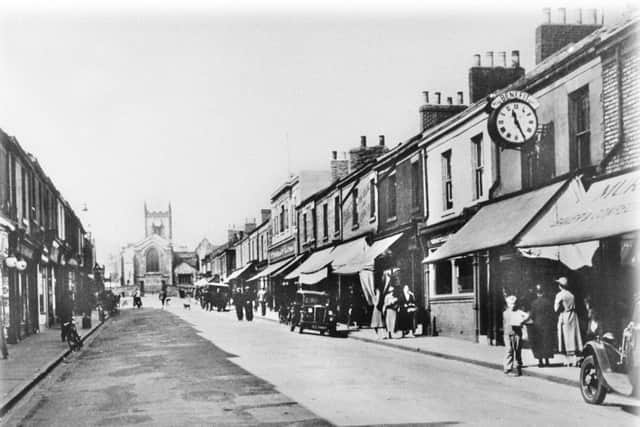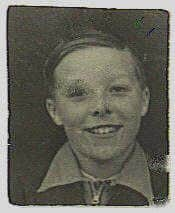Eye-witness remembers the moment a deafening German air raid hit the North East


It’s what seven-year-olds did. But what happened next was a scene he would never forget.
Les ran for his life into an Anderson shelter as the skies above turned black with German aircraft.


Advertisement
Hide AdAdvertisement
Hide AdHe and a friend feared they were going to die as the Nazis mounted a surprise attack on North East airfields in August 1940.
Today Les, now 85, re-lived his memory of that day in the first of a two-part look back.
Britain was at war but it hadn’t really reached the North East yet.
Yes, the sirens had sounded during July and August 1940. But each time, the all-clear had come soon after without any drama. The Germans seemed to be more intent on searching the coast for convoys.
Advertisement
Hide AdAdvertisement
Hide AdBut all that changed on the morning of Thursday, August 15. The Luftwaffe sprang a surprise attack on the North East.
The main attacking force arrived over Holy Island and turned south.
Defence radar stations had never seen the like before and could not say exactly how many aircraft were involved, but it was obviously a large number.
By the time the raiders reached Seaham, the “sky was black with aircraft,” said Les, who was out playing with a friend in Beech Crescent, Parkside.
Advertisement
Hide AdAdvertisement
Hide AdThe sirens sounded. Les and his pal headed for the air raid shelter at the back of his pal’s house.
“There did not seem to be any cause for concern,” said Les. “Everyone was getting used to ‘warning’ and ‘all clear’ sirens.
“We ran back over the road and climbed down into the Anderson shelter. We sat together on the long bunk bed next to my friend’s mother while his dad sat by the wooden door fixed to the corrugated steel entrance.
“Within two or three minutes, the sound of anti-aircraft gunfire could be heard in the distance. Soon the anti-aircraft guns seemed to be all around, producing a deafening noise mixed together with exploding bombs, screaming aircraft engines and the rattle of their gunfire. Crows and rooks from Dawdon Dene were in a panic and every bird was airborne and calling out in their fright.”
Advertisement
Hide AdAdvertisement
Hide AdThe mother of Les’s friend got the boys to get down lower and covered their heads with cushions, as she crouched over them.
“We were both crying and scared that we were going to die,” said Les.
After what must have seemed like a lifetime, the terrible noise died away and the two boys came out from under the cushions.
“The all-clear sounded and I ran back across the road into the arms of my mother and father; they were safe.”
But the surprise raid had left behind a devastating legacy.
Advertisement
Hide AdAdvertisement
Hide AdIn Les’s house alone, the vibration from the bombs and the gunfire had brought down all the soot in the chimney and was piled high across the hearth and rug.
Houses in Ilchester Street, Stavordale Street and Fenwick’s Row had been hit by bombs and a number of people had been killed.
Four people in one house were among those to die. In the same street, a mother and a daughter were both killed and yet the mother’s 18-month-old baby survived with minor injuries. Numerous others were taken to hospital for treatment.
Dawdon Parish Church was damaged by a bomb and a large hole was made in the north wall.
Advertisement
Hide AdAdvertisement
Hide AdThe roof was damaged and so was the vicarage next to the church.
Soon, Les and his pal were back in the street as the children of Seaham began discussing what had happened.
Some older boys told them there was lots of shrapnel in Parkside.
Les went to get a paper bag to keep them in and off the lads went to take a look. “We started picking up the jagged edged pieces of shell fragments,” said Les.
Advertisement
Hide AdAdvertisement
Hide Ad“The pieces were very hot and holding the paper bag for more than a few minutes was difficult.”
As the raid ended, the German planes headed out over the North Sea and one Heinkel was harassed all the way by three Hurricanes. It came down in the sea just off the coast at Dawdon.
It lay on the surface for a while before sinking and, despite a lifeboat being launched, no survivors were found.
Next week – unexploded bombs near Daphne Crescent.